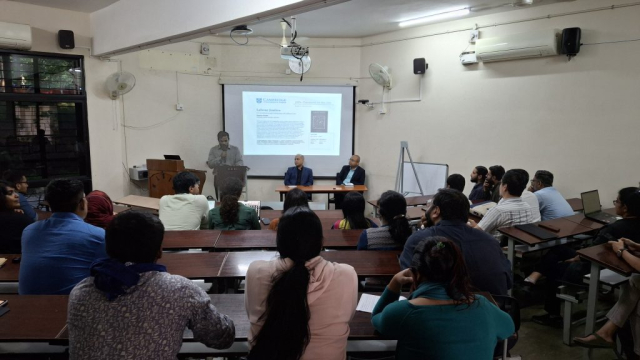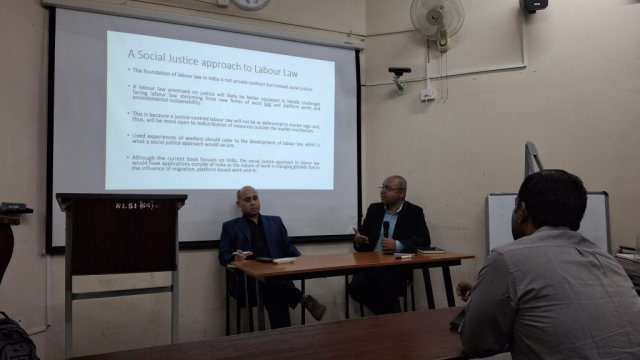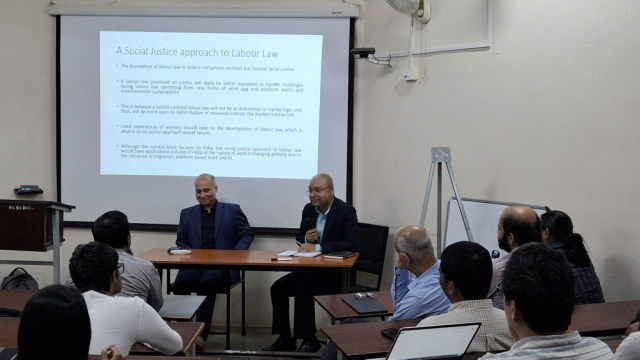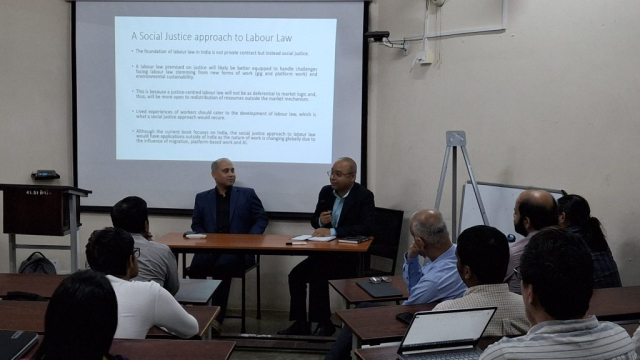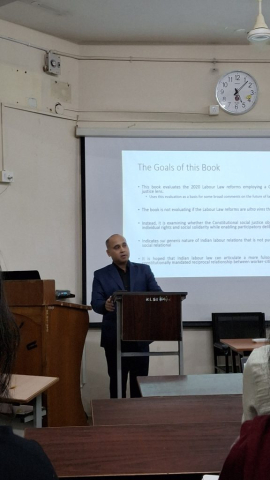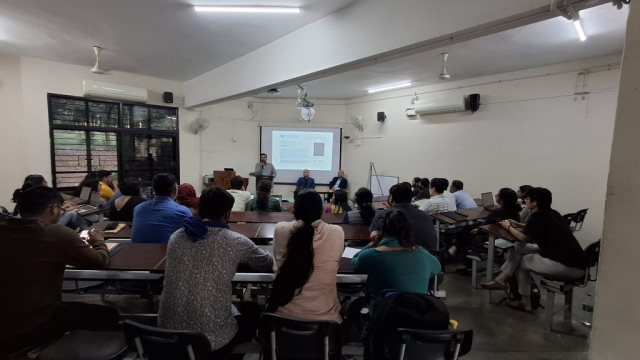The NLS Public Lecture Series | Book Discussion | Labour Justice: A Constitutional Evaluation of Labour Law
Room 102, Old Academic Block, NLSIU Campus
Wednesday, December 18, 2024, 5:00 pm
Open to the public.
 In our upcoming public lecture on December 18, 2024, NLSIU will host a book discussion with Supriya Routh, Associate Professor at the University of British Columbia, Canada. The discussion is on his book titled ‘Labour Justice: A Constitutional Evaluation of Labour Law.’ NLS faculty member Dr. Saurabh Bhattacharjee will be the discussant.
In our upcoming public lecture on December 18, 2024, NLSIU will host a book discussion with Supriya Routh, Associate Professor at the University of British Columbia, Canada. The discussion is on his book titled ‘Labour Justice: A Constitutional Evaluation of Labour Law.’ NLS faculty member Dr. Saurabh Bhattacharjee will be the discussant.
About the Speaker
Supriya Routh is an Associate Professor and Canada Research Chair in Labour Law & Social Justice at the Peter A. Allard School of Law at the University of British Columbia, Canada.
Abstract
This book argues that the imagination of the worker-citizen, inherent in citizens’ constitutional duty to work, is the very foundation of constitutional citizenship and its social justice agenda. The design of social justice in the constitution takes labour as its core ideological and political commitment, seeking to treat workers fairly for their social contribution through work. Employing this constitutional design, this book evaluates the recently repealed labour law against the constitutional metric of social justice. Drawing on the components of social justice, the book evaluates the new labour law in its capacity to promote market-based distribution, respecting basic individual liberties; the complementary redistribution of public goods, upholding the principle of solidarity; and worker participation in decisions about the operation of the market and the state. In offering such evaluation, the book conceives of work in its wider social relationship in contrast to its narrower private exchange rationale.
Excerpts from the Lecture:
“Indian labor law is unique to the Indian context, and it’s not based on contract. When I’m talking about labor law, there are two components of it. One is individual employment relationship and the other one is collective labor law wherein you have trade unions bargaining with employers. So, I’m arguing that Indian labor law has its own very unique approach to labor regulation that is not there in other countries, especially the West’s labor law, which is based on contract, private individual exchange relationship.”
“I am arguing that the Indian Constitution’s social justice framework is based on its understanding of worker citizen, and work is central to the understanding of Indian citizenship. And I’m sure you all know that many political theorists would argue that political citizenship is the primary holder of citizenship rights. But I am contending that the Indian Constitution makes worker citizenship as the core of the citizenship ideal.”


